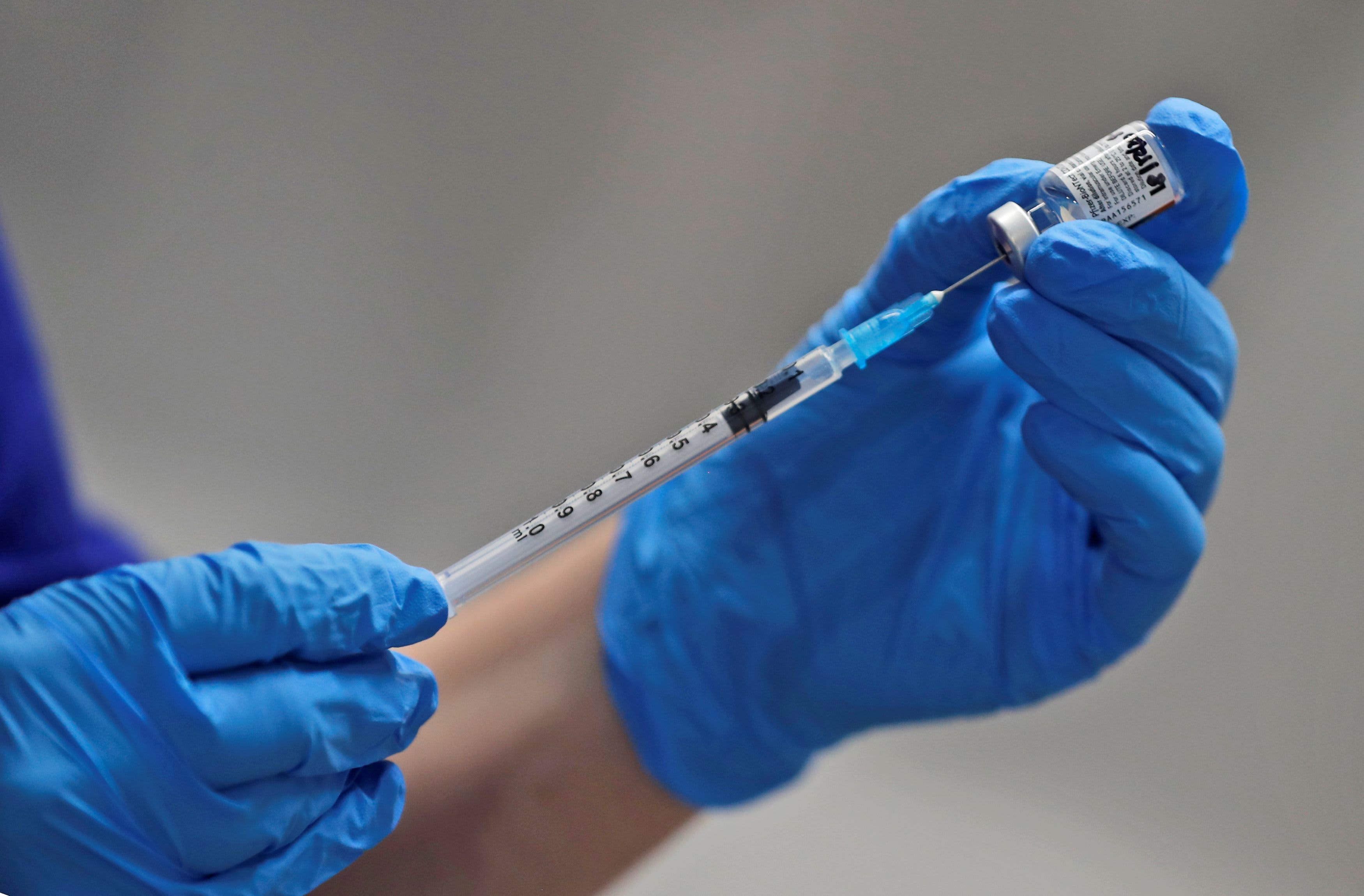Doctors criticize UK health officials for changing Pfizer Covid vaccine plan

A nurse prepares to administer the Pfizer-BioNTech COVID-19 vaccine at Guy’s Hospital in London, Britain December 8, 2020.
Frank Augstein | Reuters
Doctors in the United Kingdom are pushing back on health officials’ decision to change the vaccine schedule on Pfizer’s Covid-19 immunizations, saying it fails to follow the “science.”
U.K. health officials have decided to delay administering a second dose of Pfizer‘s vaccine for 12 weeks instead of the three weeks recommended by the company and studied in clinical trials.
U.K. health regulators on Wednesday said they would prioritize giving as many people their first dose of vaccine as quickly as possible, which could delay providing those who have already been inoculated their second dose by up to 12 weeks. Pfizer’s Covid-19 vaccine, which it developed with BioNTech, recommends administering the second shot three weeks after the initial dose.
The decisions would also apply to the two-dose coronavirus vaccine developed by the University of Oxford and AstraZeneca, which the U.K. authorized for emergency use on Wednesday. Initial doses are expected to be rolled out next week and will be added to a Covid-19 immunization program started by Britain in December with the Pfizer-BioNTech vaccine.
“We have real and grave concerns about these sudden changes to the Pfizer vaccine regime,” the Doctors’ Association UK, a non-profit advocacy group of volunteer medical professionals, said in a tweet Thursday. “It undermines the consent process, as well as completely failing to follow the science.”
The organization said in a statement that they recognize the decision to change the regime was likely difficult considering the pressure the nation’s hospitals are facing from Covid-19 patients. However, the protection shown after only one dose is “considerably lower” than if they were given two shots.
Pfizer’s late-stage clinical trials showed that the vaccine was somewhat effective after the first dose was administered. In documents published to the U.S. Food and Drug Administration in early December, data appeared to show the vaccine was at least 52% effective before the second dose and 82% effective for the combined group of people who took one or two doses.
Both Pfizer and Moderna’s vaccines have shown to be at least 94% effective, however, if given in two doses about a month apart.
Pfizer pushed back on the U.K.’s decision in a statement to CNBC on Thursday, however, saying its large clinical trials tested a 21-day interval. Two doses administered three weeks apart were shown in clinical trials to provide maximum effectiveness, the company said.
“The safety and efficacy of the vaccine has not been evaluated on different dosing schedules as the majority of trial participants received the second dose within the window specified in the study design,” Pfizer said.
Regardless, the U.K. government said the advice from the Joint Committee on Vaccination and Immunisation, which advises it on immunization programs, would “ensure that more at-risk people are able to get meaningful protection from a vaccine in the coming weeks and months.”
That would help reduce deaths and ease the pressure on the nation’s hospitals, especially as the country battles a new, faster-spreading variant of the virus.
“The Committee advises initially prioritising delivery of the first vaccine dose as this is highly likely to have a greater public health impact in the short term and reduce the number of preventable deaths from COVID-19,” the advisory committee said in a statement Thursday.
Doses of Pfizer’s vaccine have already been rolled out in the U.K. for over three weeks and about 600,000 people have already received their first doses of the drug, according to recent government statistics.
While the decision ultimately resides with health authorities, it will be “critical” to conduct surveillance on any alternative schedules to “ensure each recipient is afforded the maximum possible protection, which means immunization with two doses of the vaccine,” Pfizer said.
— CNBC’s Matt Clinch, Holly Ellyatt, Steve Kopack and Berkeley Lovelace Jr. contributed to this report.




